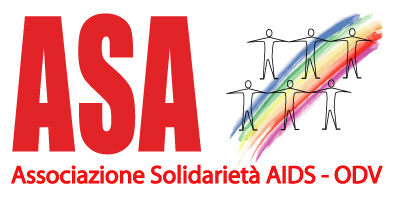Many young gay men consider ‘safer sex’ to be about more
than condom use, according to a qualitative study conducted in Scotland. Encouragingly,
many consider regular HIV testing to be a component of safer sex. More
problematically, condomless sex with a regular partner was described as being
relatively safe, even when there was little
Injectable rilpivirine shows promise in phase I trials – but may work better for anal than vaginal sex
A phase one dose-finding and safety study in humans of TMC278
LA, a long-acting, injectable formation of the antiretroviral (ARV) drug
rilpivirine, found that a single 1200-mg dose could produce sustained drug levels
in rectal tissues that could offer protection against HIV for three months, and
did in fact suppress viral replication in so-called
Injectable cabotegravir makes progress towards human efficacy studies: doubts about injectable rilpivirine
Researchers
have determined the dose of an injectable formulation of the integrase inhibitor cabotegravir
(formerly GSK744) that will be taken into efficacy trials to see if it can be
used for pre-exposure prophylaxis (PrEP). Studies
in animals were presented earlier this year suggesting that drug levels
stayed high enough in the body for it to
Tenofovir gel use associated with lower HSV-2 risk in women
The
risk of acquiring herpes simplex virus type 2 (HSV-2) was reduced by 46% (aIRR:0.54,
95%CI:0.30-0.97, p=0.038) among women who regularly used the vaginal gel
containing tenofovir, according to a secondary analysis of the Vaginal and Oral
Interventions to Control the Epidemic (VOICE) trial
presented at the HIV Research for
Prevention conference (R4P) in Cape Town,
Increased expenditure on social security has benefits for TB control in the EU
Increased
expenditure on social protection programmes – sickness, disability and
unemployment benefits, old age pensions, housing support – is associated with
improved tuberculosis (TB) control, according to an analysis of data from
European Union (EU) countries published in Lancet
Infectious Diseases.
“Social protection
spending is strongly associated with lower tuberculosis case notification,
incidence, and mortality rates,” comment the
Research for Prevention conference opens with real hope for an HIV vaccine
“There’s
only one Berlin patient still. But by this time next year he will at least be
joined by 40-50 Portland monkeys.” This
was vaccine researcher Louis Picker, summarising in quotable form why the
outlook for the development of an effective HIV vaccine is brighter than it has
been for years, in a Satellite session
Second European PrEP study is closed early due to high effectiveness
In
an extraordinary development, a second European scientific trial of
pre-exposure prophylaxis (PrEP) has had its randomised phase closed early due
to high effectiveness, just
two weeks after the UK PROUD trial did exactly the same thing.
The
investigators of the IPERGAY trial, which has six sites in France and one in
Canada, announced today a “Significant
How does a ‘human rights based approach’ work out on the ground? Lessons from South Africa
While international rhetoric on HIV and AIDS frequently
invokes human rights, putting these ideas into practice in specific settings
remains challenging, according to a process evaluation of an intervention in
rural South Africa published in the October issue of Culture, Health and Sexuality. Although female health volunteers
understood gender inequalities to be a key
Relazioni familiari positive: minor rischio di contrarre l’hiv in giovani gay
 Relazioni familiari fondate sullo scambio, sulla fiducia e sull’astinenza da giudizi morali da parte dei familiari riduce il rischio di comportamenti sessuali ad alto rischio e di conseguenza riduce il rischio di contrarre l’HIV.
Relazioni familiari fondate sullo scambio, sulla fiducia e sull’astinenza da giudizi morali da parte dei familiari riduce il rischio di comportamenti sessuali ad alto rischio e di conseguenza riduce il rischio di contrarre l’HIV.
NNRTIs and protease inhibitors both good for first ART, channelling affects choices
Non-nucleoside
reverse transcriptase inhibitors (NNRTIs) and boosted protease
inhibitors work equally well for people starting HIV treatment for the first
time, with similar viral suppression, CD4 cell gains, and disease
progression, according to a large meta-analysis presented
at IDWeek 2014 earlier this month in Philadelphia. A related study
shed light on factors affecting choice of
initial antiretroviral regimen.

